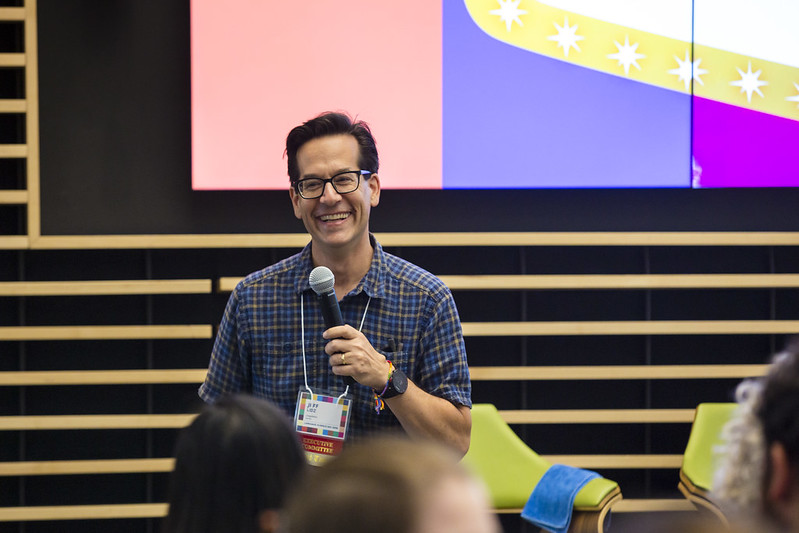Jeff Lidz, new LSA Fellow, gives Plenary Address
December 28, 2024

Developing linguistic theory through a diversity of methods.
Congratulations to our Chair, Jeff Lidz, who has newly been named a Fellow of the LSA, for "distinguished contributions to the discipline and the Linguistic Society of America," joining Howard, Masha and Colin in an elite group with fewer than 200 members. The award will be announced at the 2025 Annual Meeting of the Linguistic Society of America in Philadelphia, where on Thursday January 9, Jeff has the honor of giving a plenary address. His talk, abstracted here and below, presents the work of Jeff and his collaborators in the context of the methodological pluralism that guided the advent of modern linguistics. The venue is especially meaningful, as much of Jeff's work is rooted in his time as a postdoc in Philadelphia at Penn's Institute for Research in Cognitive Science (1990-2016), working under the mentorship of Lila Gleitman.
Joining Jeff at the Annual Meeting will be several Maryland linguists presenting their work in talks, posters and symposia, including Baggett Fellow Sadie Lewis, PhD students Utku Türk, Mal Shah, Sebastián Mancha, Jack Ying, Rosa Lee, London Dixon, and Katherine Howitt; plus recent postdocs Alex Chabot and Anna Grabovac.
- Sadira Lewis and Utku Türk / Superiority Effects with Adjuncts in Turkish [talk]
- Jack Yuanfan Ying / Complex tone sandhi types in the Chinese Wu dialect of Huangyan [talk]
- Mal Shah, Alex Chabot and Anna Grabovac / Intensification via gemination: Support for indirect infixation [talk]
- Mal Shah and Sebastián Mancha / English affix-hopping without affixes hopping: Spanning eliminates T-to-V Lowering
- Eunkyoung Rosa Lee, London Dixon, Katherine Howitt et al. / Publicly engaged language science research: Lessons learned from the Language Science Station at Planet Word [symposium]
Methodological pluralism in linguistic theory construction: Steps towards a true cognitive science of language
The cognitive revolution of the 1950s and 60s insisted that the mind itself was a proper object of study, with structure (sometimes unlearned) that shapes the content of experience. This insistence came with a pluralism about evidence and methods. When psychology is not the science of certain ‘overt’ behaviors, but instead of the ‘hidden’ mental structure of the organism, we cannot be sure in advance where or how we will find our evidence. Modern linguistics was at the center of the revolution, but sometimes linguists have failed to appreciate its methodological pluralism. Early work that attempted to use methods from behavioral psychology, instead of structural analysis of distributional patterns, ran into trouble deriving from naive ideas about how a mental grammar would reveal itself in behavioral tasks. These troubles encouraged in some a counter-revolutionary chauvinism within linguistics about what kinds of methods were revealing about linguistic structure, and in others a general skepticism about either the cognitive interpretation or the everyday utility of linguistic theory.
I believe we are currently at a stage when enough is known about the extralinguistic systems that are engaged by language in order to make real progress in using a diversity of methods to reveal important aspects of linguistic structure and its relation to extralinguistic cognition. In this talk, I will walk through some of our recent findings on quantification, argument structure and wh-movement that depend on insights from vision science, infant cognition, and domain-general information processing systems. Together these results reveal how much we can learn about the human capacity for language when we have explicit hypotheses about linguistic structure, an understanding of extralinguistic cognition and concrete ideas about how grammatical knowledge interfaces with other areas of cognition. In turn, this work recenters a cognitive interpretation of grammatical theorizing in syntax and semantics.

